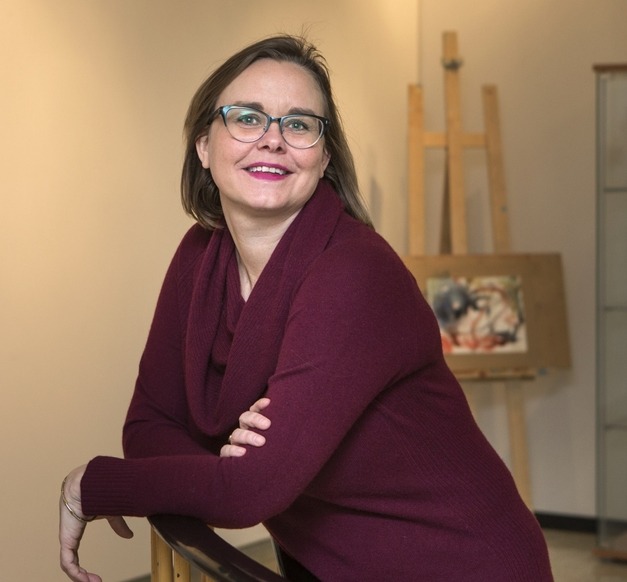Brynja Elísabeth Halldórsdóttir, lecturer at the Faculty of Education Studies
Icelandic society is becoming ever more multicultural with increased immigration to the country from all over the world, but at the same time increasing numbers of immigrants mean there is a danger that the discourse here in Iceland will become negative and aggressive. Such discourse and its impact on children and adolescents is the subject of this new research, conducted by Brynja Elísabeth Halldórsdóttir, lecturer in education studies.
The inspiration for Brynja's research came from her experience in Icelandic society as a child with two nationalities – her mother was Irish. The research is based on on-site observation and interviews with adolescents, their parents and teachers, as well as a consideration of discourse in the media. "First I have to know how Icelanders view, think and speak about immigrants and the discussions that come up in connection with immigrants and foreigners," Brynja says about the latter component of the research. She estimates that the research will take up to three years, although she has already begun collecting data.
Brynja Elísabeth Halldórsdóttir

Brynja's initial results are similar to the results in a report from Bjarney Friðriksdóttir on the subject of hate speech in comment sections of Icelandic online news sites, completed under the auspices of the Reykjavík Human Rights Office in 2014. They indicated that a large number of people's comments could be categorised as hate speech.
"Luckily there are a lot of positive sides to the discourse, but there are always a few negative voices, usually related to fear of the other. To prevent negative discourse on immigrants we must discuss the issues, but it is difficult to talk positively about something that is negative in some people's minds," says Brynja. She says that a huge number of positive projects focused on immigrants are currently underway, e.g. Intercultural Encounters at the Reykjavík City Library, the Multicultural and Information Centre in Ísafjörður and its website, to name a couple of examples. "It's not enough to be open to letting people into the country. Something more is needed. People must feel that they are part of society," says Brynja.
As to the possible benefits of her research, Brynja says it is her dream "to help teenagers form closer friendships and a closer sense of community.


